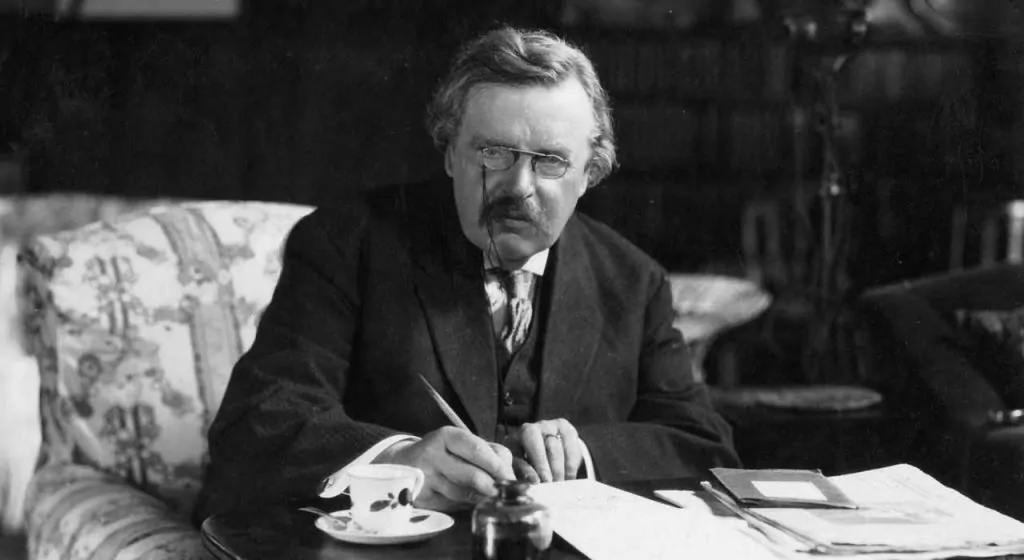Why biblical poetry matters
Skim through any modern Bible and you will notice something peculiar: many pages are laid out as poetry, with appropriate spacing and indents. But have you ever wondered what makes these verses poetic?
For most people, this subject remains an enigma, and some will wonder why they should even care. Poetry seems like the wrapping around a present, or the envelope for a card — superfluous and largely decorative. It is the message that is important, and paying attention to the form may be a distraction.
Of course, for a believer that should be a flimsy argument. Surely God loves beauty and complexity (Gen 1:31, Psalm 139:14), and although beauty is fleeting (Prov. 31:30), that is no excuse to ignore it.1 It does not make sense when Christians stand in awe of a gorgeous sunset, or we all hang the same poem about footprints on our walls, but we cannot be bothered to learn how the Psalms were composed.
Beautiful in any language
The astonishing thing about biblical poetry is that it generally translates into any language. The principal technique is not a matter of meter or rhyme: it has to do with the structure of the lines. In most cases, two or more lines run parallel to each other. Consider Psalm 122:7:
May there be peace within your walls
and security within your citadels.
You can see that the terms run parallel. Peace and security mirror each other, as do the walls and citadels. The name for this type of poetry is Hebrew Parallelism. In what follows, we’ll explore how this poetic technique works and why it matters.
Robert Lowth’s rediscovery of Parallelism
It was the Anglican Bishop Robert Lowth who in the 18th century rediscovered Hebrew Parallelism. For centuries, Christians had been confused about how best to describe biblical poetics. According to Lowth, Hebrew parallelism typically follows one of three patterns:
Synonymous
Antithetic
Synthetic2
Let’s take a closer look at each of these.
The example we just looked at is a form of synonymous parallelism. In such cases, the same idea is repeated in similar language. One of the more famous examples of consistent synonymous parallelism is Psalm 114:
1 When Israel came out of Egypt,
Jacob from a people of foreign tongue,
2 Judah became God’s sanctuary,
Israel his dominion.
3 The sea looked and fled,
the Jordan turned back;
4 the mountains leaped like rams,
the hills like lambs.
5 Why was it, sea, that you fled?
Why, Jordan, did you turn back?
6 Why, mountains, did you leap like rams,
you hills, like lambs?
7 Tremble, earth, at the presence of the Lord,
at the presence of the God of Jacob,
8 who turned the rock into a pool,
the hard rock into springs of water.
In this psalm, every verse consists of a mirroring of terms. Lowth felt that parallelism might be compared to the way two choirs can sing back and forth — a type of chant known as antiphony. Lowth speculated that the Jews might have incorporated something similar in their worship. Think of Psalm 136, where the refrain “His love endures forever” is a repeated response.
Lowth’s second type, antithetic parallelism, involves a sharp contrast. It is particularly common in the book of Proverbs:
A cheerful heart is good medicine,
but a crushed spirit dries up the bones. (Prov. 17:22)
The poor plead for mercy,
but the rich answer harshly. (Prov. 18:23)
The idea is that when we reflect on such contrasts, we can grow in wisdom.
Finally, Lowth used synthetic parallelism as a catch-all category for anything that is not synonymous or antithetic. Synthetic parallelism typically involves a progression of ideas, so that one thing follows another. Take this passage from Psalm 84:
5 Blessed are those whose strength is in you,
whose hearts are set on pilgrimage.
6 As they pass through the Valley of Baka,
they make it a place of springs;
the autumn rains also cover it with pools.
7 They go from strength to strength,
till each appears before God in Zion.
While the end of verse 6 may contain an element of synonymous parallelism, these verses are more about developing an idea. In keeping with the focus on pilgrimage, the emphasis is on movement.
Two of Lowth’s examples of synthetic parallelism eventually came to have their own names. The first is now usually called staircase or climactic parallelism. Psalm 93:3-4 provides a dramatic example:
3 The seas have lifted up, Lord,
the seas have lifted up their voice;
the seas have lifted up their pounding waves.
4 Mightier than the thunder of the great waters,
mightier than the breakers of the sea—
the Lord on high is mighty.
The repetition of phrases (like a staircase) creates a crescendo that builds to a climax. In this passage, we can imagine the waves growing in size!
Another type of synthetic parallelism is commonly called numerical parallelism. This is a poetic use of counting, something that is used to great effect in Amos 1:
3 For three sins of Damascus,
even for four, I will not relent.
The same device occurs four more times in the rest of the chapter.
The Sharpening Theory
Robert Lowth established the basics of Hebrew Parallelism, yet his simple categories were not beyond criticism. Scholars objected that the synthetic category was ill-defined, that the term parallelism may imply too much similarity between the lines, and that parallel structures are not exclusive to poetry, but can be found elsewhere in the Bible as well.
The most forceful critique came in 1981 from James Kugel, the author of The Idea of Biblical Poetry: Parallelism and Its History.3 Kugel developed what we might call the “Sharpening Theory” of Hebrew Parallelism. To understand what he meant, it is good to reflect on the nature of proverbs.
Proverbs are a bit like riddles. When someone says, “the apple does not fall far from the tree,” it takes us a moment to figure out what that really means. A proverb makes us stop and think. James Kugel points out that in the Bible this quality is sometimes described as a certain sharpness. A proverb pricks our conscience and makes us reflect on the proper way to act. Unfortunately, the fool feels the prick, but does not benefit from it:
Like a thornbush in a drunkard’s hand
is a proverb in the mouth of a fool. (Proverbs 26:9)
If we take these observations about proverbs and apply them to Hebrew Parallelism, then we see that the parallel lines also force us to slow down and consider their relationship. At first, we might observe mostly repetition, but a closer look reveals that there is more to the picture. The unique features of each line stand out in sharp relief. This makes reading the Bible exciting. The following verse provides a good example:
Through love and faithfulness sin is atoned for;
through the fear of the Lord evil is avoided. (Proverbs 16:6)
Is the same thought expressed twice? Not really. Not only do the lines mention different, yet related actions (love and faithfulness; the fear of the Lord), but the verse makes us contemplate the connection between atonement and avoidance of sin. Atonement might make up for past transgressions, whereas avoidance is about future temptations. In this way, the proverb creates a complex picture that encourages the righteous to live wisely.
Midrash
James Kugel further pointed out that Jewish rabbis who interpreted the Bible preferred to focus on the differences between parallel lines.
In the Jewish tradition, the word Talmud refers to a variety of rabbinic texts that came to supplement the Old Testament books. After the return from exile in Babylon (6th century BC), the Jews increasingly developed an oral tradition that interpreted the Torah (the five books of Moses) and added further regulations and customs. Written compilations of the Talmud stem from as early as the third century AD. The act of interpreting the Talmud and the Bible came to be known as Midrash. This word refers to both rabbinic interpretation and an actual written collection of such interpretations.
Rabbis who practiced Midrash (especially during medieval times) often came up with ingenious ways to contrast poetic lines that seemed to say the same thing. Let’s look at a couple of examples that Kugel provides. First, we read in Genesis 21:1:
Now the Lord was gracious to Sarah as he had said, and the Lord did for Sarah what he had promised .
Sounds the same. But at least one commentator suggested that the last “he” might refer to Abraham. A couple of verses earlier (Gen. 20:17), Abraham had prayed on behalf of Abimelek:
Then Abraham prayed to God, and God healed Abimelek, his wife and his female slaves so they could have children again.
Taking this line into consideration, Gen. 21:1 might be interpreted to mean:
Now the Lord was gracious to Sarah as he had said, and the Lord did for Sarah what he, Abraham, had spoken to God about in his prayer, namely to provide fertility.
Suddenly the two lines become quite different in meaning. The second pronoun he now refers to Abraham. Here is another example, from the instructions for Passover celebrations:
Do not eat it with bread made with yeast, but for seven days eat unleavened bread. (Deuteronomy 16:3)
A midrashic reading might note that these are two different commandments—a negative and a positive one. Not only must bread with yeast not be eaten, but unleavened bread must be eaten.
It is in part because medieval rabbis were so focused on the differences that a full understanding of Hebrew Parallelism was lost during this time and had to be recovered by scholars such as Robert Lowth. At the same time, the Midrash does remind us not to assume that parallelism is always about exact similarity. The differences are important!
A dynamic movement
Kugel’s Sharpening Theory has us examine each set of parallel lines on its own terms. Instead of reducing parallelism to a few main types, we look for a wide variety of features. For each verse, the question is, how does the second line (B) extend the first (A)? To use Kugel’s wording, it’s not “A=B” but “A, and what’s more, B.” Instead of Lowth’s three main categories, we can now have any number of relationships between A and B. It is up to each reader to meditate carefully on the subtle similarities and differences between the lines.
The scholar Robert Alter, expanding on the work of James Kugel, provides a great description of this relationship between A and B. He talks about a “dynamic movement.”4 The second line should never seem predictable or merely repetitive. There’s something captivating about the way the thought is extended. For Alter, the second line often includes an intensification or focusing of the first thought. You can compare it to seeing something and then getting out the binoculars or microscope to take a closer look. The tricolon (a triple parallelism) in Psalm 100:3 provides a great example:
Know that the Lord is God.
It is he who made us, and we are his;
we are his people, the sheep of his pasture.
Each line zooms in a little. Each line makes the thought more specific. This dynamic movement between the lines requires our participation. As readers, we are drawn into the text.
If that sounds like a lot of work, then recall that Hebrew Parallelism is also quite slow-moving and unhurried. Each idea is expressed in multiple ways. The effect is somewhat like hearing a choir sing in a cathedral, repeating phrases and letting their voices echo through the cavernous space. This is not to say that an Old Testament psalm is like a Bach aria, but that in both cases the speed and cadence is measured and controlled. Important phrases and ideas come back in new form, so that we do not only listen for individual lines, but we also gradually gain a sense of the whole piece.
The big picture
Speaking of the composition as a whole, the final step is to put it all together. It is one thing to spot parallel structures, but it requires more practice to discern how the lines work together.
For example, Psalm 133 has quite a neat and tidy structure, with two similes (verses 2 and 3a) framed by an opening statement (1) and a conclusion (3b):
1 How good and pleasant it is
when brothers live together in unity!
2 It is like precious oil poured on the head,
running down on the beard,
running down on Aaron’s beard,
down on the collar of his robe.
3 It is as if the dew of Hermon
were falling on Mount Zion.
For there the LORD bestows his blessing,
even life forevermore.
Verse 2 is a great example of what Robert Lowth called staircase parallelism. This technique is all about movement and intensification. Just as the oil runs down the high-priest’s beard, so the lines flow on and on. The liquid imagery is extended in the comparison to dew. Clearly, the author of Psalm 133 thought carefully about best to match the form of the poem to the content. The poetry helps to express the message. In other words, not only should brothers live in harmony, but the psalm itself has to have a sense of “unity.”
Conclusion
In addition to Hebrew Parallelism (the main feature of biblical poetry), God’s Word displays many other poetic techniques (personification, chiasmus, etc.). For a long time, Christians have been content to ignore these features, whereas in reality the beauty of the Bible provides an incredible appeal. Why is a passage such as Isaiah 53 so moving? Why do we memorize Psalm 23 or 103? The poetry in these passages does not detract from the truth of scripture, but makes it resonate in our hearts. I imagine many conversion stories also include an element of awe at the sublimity of Holy Scripture. Mission work is enhanced by bringing out those qualities that make the Bible the Great Book.
I would therefore encourage Christian parents and educators to know the basics of biblical poetry, not only for their own appreciation, but also so they can teach children to marvel at the beauty of the Bible. Psalm 19 describes how the heavens “pour forth speech” (verse 3), before adding, paradoxically, “They have no speech, they use no words; / no sound is heard from them.” Creation can speak of the glory of God, without using actual words. Indeed, we teach children that Nature displays God’s goodness and faithfulness. But Psalm 19 points out that God’s Word (the “law”) is likewise worth meditating on, and it does contain words and speech. The “precepts of the Lord” are “sweeter than honey” and give “light to the eyes.” The fact that the Psalmist used paradoxes, metaphors, and parallelism to describe his delight in the Word can only mean that biblical poetry is an equally nourishing and eye-opening experience. So, take the time to study and appreciate the poetry of the Bible, not just to know why some lines are indented on the page, but to truly savour the divine artistry of the Word.
Dr. Conrad van Dyk is Professor of English at Concordia University of Edmonton, where he teaches everything from medieval literature to children’s classics. Recently he has started creating online literary courses from a Christian perspective (and for a reasonable price). The very first course is a detailed introduction to biblical poetry which you can find at LitCompanion.com. Portions of this course have been used in this article. He attends Immanuel Canadian Reformed Church in Edmonton.
Endnotes
1) Quotations from the Bible are from the NIV, with one exception. For Psalm 133, I have reintroduced the word “brothers.”
2) I have used G. Gregory’s English translation (1753) of Robert Lowth’s On the Sacred Poetry of the Hebrews, which is freely available online.
3) See James Kugel, The Idea of Biblical Poetry: Parallelism and Its History (Yale UP, 1981). The examples of Midrash are taken from Kugel, pp. 98-106; the discussion of how A and B relate can be found on p. 8. Kugel’s ideas were developed by S. E. Gilllingham, The Poems and Psalms of the Hebrew Bible (Oxford UP, 1994), who suggests that we tend to see three patterns of parallelism, i.e., A=B (comparison and contrast), A>B (the second line is subordinated to the first), and A<B (where the second line develops the first, for example through intensification or comparison). A summary of Gillingham’s approach can be found in William W. Klein, Craig L. Blomberg, and Robert L. Hubbard, Jr., Introduction to Biblical Interpretation (Thomas Nelson, 2004), p. 289ff. Personally, I prefer Kugel’s less formulaic approach, where each set of lines is treated on its own terms.
4) Robert Alter, The Art of Biblical Poetry (Basic Books, 1985), p. 10....































